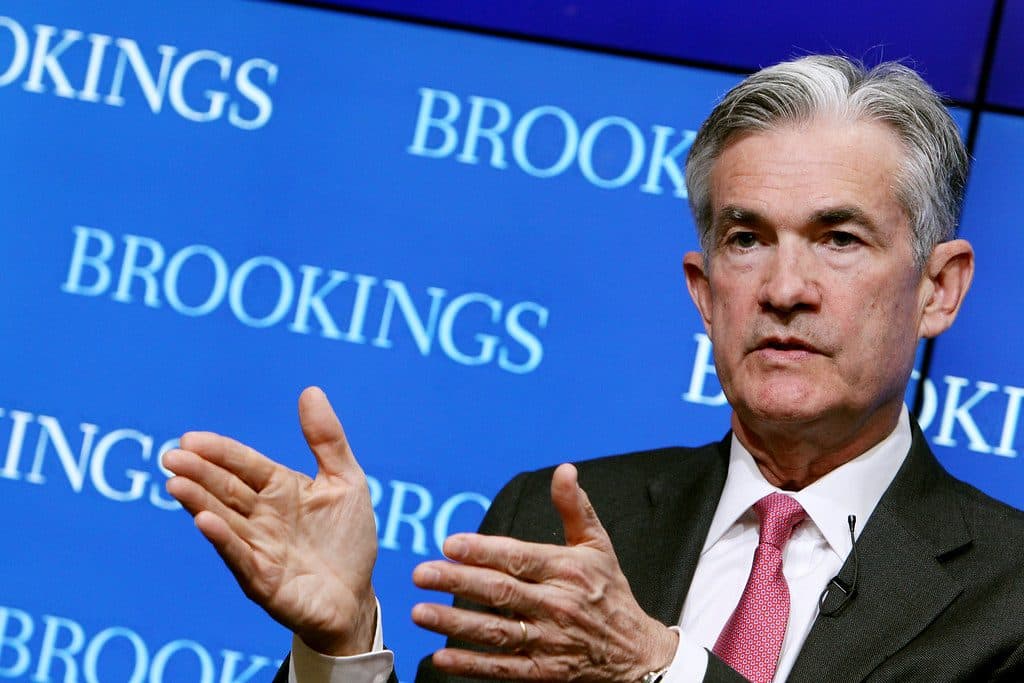Powell: Inflation is High, But It Won’t Last
Powell attributed many of the price hikes to supply chain issues and bottlenecks and admitted that it’s difficult to say when these will go away

Jerome Powell, Source: Sharon Farmer/sfphot. (CC BY-ND 2.0)
- Federal Reserve Chairman Jerome Powell testified Tuesday before the House Select Subcommittee on the Coronavirus Crisis
- The Personal Consumption Expenditures, the Fed’s preferred tool to measure inflation, will be released on Friday and will provide insight into how soon Americans can expect the Fed to start tapering.
Federal Reserve Chairman Jerome Powell faced tough questions from lawmakers about the Fed’s current easy-money policies while testifying Tuesday before the House Select Subcommittee on the coronavirus crisis.
In his prepared opening remarks, Powell maintained that while inflation may be on the rise, it will be transitory. He has “a level of confidence” that the high prices consumers are worrying about will be fleeting.
Powell attributed many of the price hikes to supply chain issues and bottlenecks and admitted that it’s difficult to say when these will go away. A 5% inflation environment is not acceptable, Powell said, and requested that consumers and lawmakers exercise patience when evaluating data on prices.
“We will not raise interest rates preemptively, because we think employment is too high, because we fear the possible onset of inflation, instead we will wait for actual evidence of actual inflation or other imbalances,” Powell said during the testimony.
When faced with questions from lawmakers concerned about the current level of inflation, Powell stayed on message and maintained that supply chain and labor-related issues will be solved in the coming months and will help to keep prices in check.
“I strongly suspect that the labor supply and job creation will be moving up well over the rest of this year,” he said.
Powell declined to comment on current unemployment benefit policies but admitted that higher unemployment payments may be playing some role in the lack of laborers. He also noted job quits, retirements and the closure of schools and daycares as labor market stressors as well.
The Personal Consumption Expenditures, the Fed’s preferred tool to measure inflation, will be released on Friday and will provide insight into how soon Americans can expect the Fed to start tapering.
The message is largely on-par with Powell’s Federal Open Market Committee meeting statement last week where he maintained that stronger economic data will be needed before the Fed starts to taper bond purchases. The committee also updated their economic forecasts and suggested that interest rate hikes may come in 2023, according to the dot plot survey released Wednesday.
Fed officials seem to have mixed opinions on interest rates and tapering efforts. New York Fed President John Williams said on Wednesday that the Fed will not begin discussing lower rates until “way off in the future.” Conversely, Cleveland Fed President Loretta Mester said Wednesday that keeping rates near zero in the long run, coupled with unprecedented asset purchases, risks financial stability problems.
Following Powell’s remarks, stocks climbed late in the trading day Wednesday while the dollar fell.






